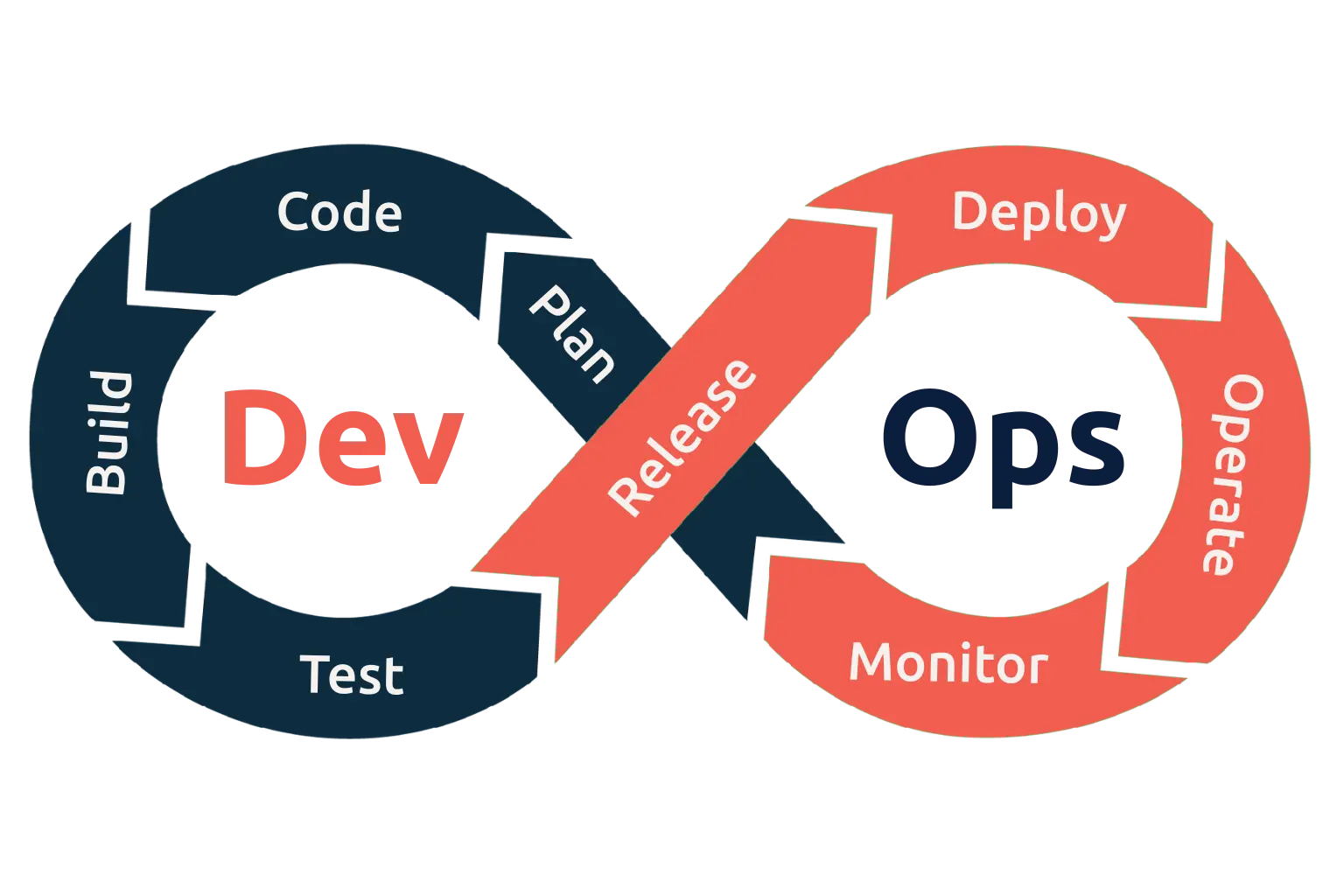DevOps and CI/CD bring structure and automation to Odoo development. They help manage complexity across custom modules, upgrades, and multi-environment deployments.
By connecting development, testing, and operations, teams can reduce risk, catch issues earlier, and roll out changes with confidence.
For Odoo projects, this means better control over how code is delivered from the first commit to live production. See how developers can get faster feedback, operations teams can gain visibility and deployments become consistent and low-risk.
Odoo combines development and operations in a single workflow
Odoo development requires a close connection between coding, testing, hosting, and deployment. A DevOps approach links these steps through automation, version control, and shared responsibility.
A typical setup includes containerised environments, version-controlled modules, automated test execution, and monitoring systems that catch issues early. Developers work in branches connected to pipelines that build and test code before every push and deployment.

DevOps supports frequent changes and reliable Odoo updates
Odoo projects often involve ongoing customisation. New features, integrations, or module updates may happen weekly. Without DevOps, this pace increases the risk of regressions and downtime.
By introducing structured workflows, DevOps reduces uncertainty. Changes are tested in isolated environments. Deployments follow consistent rules. If an issue arises, teams can trace it back to the source quickly.
This process allows faster iteration without sacrificing stability.
CI/CD connects code, testing, deployment, and feedback
Continuous Integration (CI) ensures that every code change is validated against standards and automatically verified. Developers push changes to source control, triggering a pipeline that runs quality checks and unit tests. Tools for code standard compliance, security checks, and complexity analysis are often used at this stage.
If all CI processes succeed, Continuous Deployment (CD) can package the code into a container image. That image is then deployed to a test or production system. All steps are tracked and reproducible.
Feedback is immediate. If something fails, the system notifies the team with logs and context. This tight feedback loop supports both quality and speed.
A DevOps-ready Odoo setup enables safe and automated delivery
In Odoo, a strong DevOps foundation allows for fully automated delivery pipelines. Code moves from development to production through containers, version control, and defined branching strategies.
Testing environments are isolated, and data privacy can be preserved using anonymised databases. This separation ensures that real-life issues can be reproduced without exposing sensitive information.
When done well, these pipelines allow reliable deployments at any time and not just during maintenance windows.
Teams must align before introducing Odoo DevOps workflows
Before setting up DevOps, teams need to clarify responsibilities, processes, and tooling. Repository structure, test coverage, and deployment rules must be agreed upon in advance.
For Odoo, this also includes setting up configuration files that define which version to build, which dependencies to install, and which environments to target.
Test coverage should be automated and enforced. Branching models must reflect the intended release strategy. Without alignment, automation breaks down and manual work returns.
DevOps brings speed, quality, and visibility to Odoo
Once implemented, DevOps practices make the Odoo delivery cycle smoother and more predictable. Code is tested continuously. Changes are deployed automatically. Teams can trace every update and know exactly what version is running.
For development teams, this means faster feedback and fewer disruptions. For project managers, it brings clarity and control over the release process.
And for clients, it improves the overall quality of the system to receive new features faster and reduce turnaround time.
Want to build a reliable Odoo DevOps process? Talk to our experts!
Connecting development, testing, and deployment in Odoo requires the right DevOps setup. from CI pipelines to containerisation and automated releases.
Want to assess your current workflows or plan for automation? Reach out to our experts and make sure your Odoo DevOps setup is built for speed, safety, and scalability.